Like so many questions in life, there is no single right answer to the question, “What is the best programming language for beginners?” Every coding language has its pros and cons and each application may benefit from using one language over another. Still, if you are looking for the right coding language for beginners, there are a few that stand out because they are easier to learn and they complement well with other languages and platforms.
Which coding language should I learn first as a beginner?
While this will depend on your individual goals, JavaScript and Python are good coding languages to learn first as a beginner. They are both relatively easy to learn, in demand, and offer good career growth.
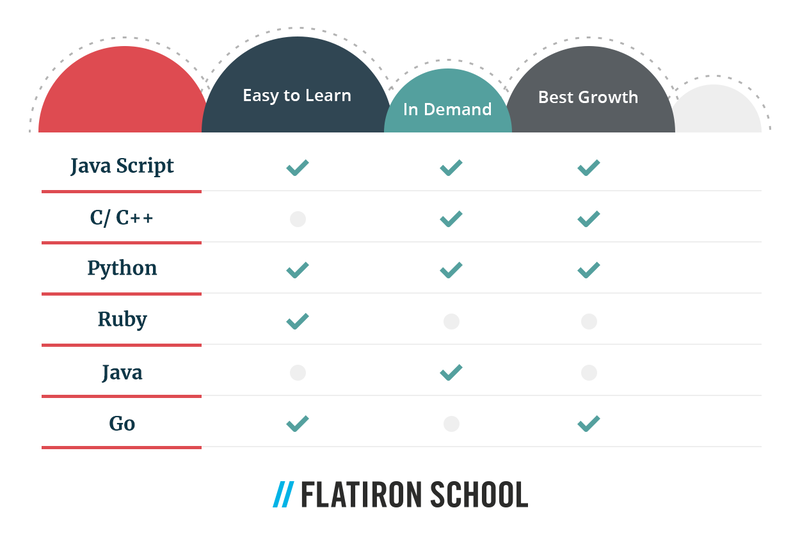
Coding languages that are easy to learn
Just because a coding language is easy to learn does not necessarily mean it is the right choice for you and your goals. If a language is easy to learn, then it is likely that many others will learn it as well. This means more competition and, probably, lower-paying jobs.
That is not to say that learning them is not worth your time. The languages that are easy to learn and use are popular in part because they are easy. This means that although the gigs may not pay as well, they are going to be constantly in demand, providing job security.
There is also an advantage to starting your career in one of the easier languages. Once experienced and trusted, your employer may provide you with the option of learning other coding languages. You may also find it a bit easier to take on the more complex languages once you have mastered one of the simpler ones.
Coding languages that are in demand
Fortunately for those who are just getting started in the world of coding languages, some of those that are in the highest demand are also those that are easiest for the newbie to learn. For those languages that are not simple, the high and constant demand may make the extra effort to tackle them worthwhile.
Java offers its users many different career options. The fact that it is an older language means that it has stood the test of time and still maintains its usefulness. It is unlikely that this is a skill that will be rendered obsolete, leading to the prospect of a long and successful career.
C/C++ are also older languages that have proven their long-term usefulness. While they may be difficult for the novice to learn, they will allow those who do to be well rewarded. Not only do these languages open up many potential career paths, but once learned, they make it much easier for you to take on the challenge of learning one of the other, less complex languages.
Coding languages with the best growth potential
If your goal is to provide yourself with as many avenues to financial success and career satisfaction as possible, then you may want to consider learning Java, Python, C/C++, or Go, first. These are the languages that both give you a high probability of landing your first coding job and give you a leg up on further learning and career growth.
What are the most popular programming languages? And what are they used for?
According to GitHub, an advanced programming platform that allows users to create, store and distribute software, these are the most used coding languages:
- JavaScript
- Python
- Java
- C/C++
- Go
- Ruby
- PHP
- C#
- Swift
- Rust
The ratings are based on the number of times each particular coding language was pulled from GitHub to be used, but they do not tell us about the actual uses for these languages or how suited they are for coding for beginners. Being on this list does not automatically mean that any of these constitute the best coding language for beginners, but being on this list does indicate popularity and common use.
That being said, you can surmise that the most in-demand languages are highly sought after for a reason: the highest number of people found them to be valuable.
JavaScript
JavaScript is the most popular coding language for two simple reasons: it is highly versatile and is quite easy to learn. This makes it a good candidate for your first basic programming language. Once learned, it can be used to build everything, from websites to servers to apps. It allows users to work on both the server-side and the client-side — or front-end web development — giving a team more flexibility to share the workload.
The most common careers that employ people able to use JavaScript are software engineers, mobile developers, front-end developers, and full-stack developers.
Python
Python is a popular coding language because it can be used in a wide variety of situations and it is easy to learn, even for those who are new to coding. But don’t be fooled by its ease of use. Python is a powerful tool, used by giants in the digital world like Google and Facebook.
Although Python can, and is, regularly used for website development, it can do so much more. It can be used for animating, scientific computing, machine learning, and creating, searching, and organizing data sets.
There is a wide variety of careers in need of Python users as well, including data scientists, software developers and engineers, as well as analysts of all types.
Java
Java has been one of the most popular languages for over 20 years because of its reliability, scalability and cross-platform compatibility, and is used by companies like Google, Uber, and Netflix. It is more complex and harder to learn than some of the newer languages, but that does not make it any less useful. It is commonly used to build mobile apps, back-ends, and especially used for machine learning because of its speed.
The careers that are looking for Java users include data analysts, scientists, and front-end, back-end, full-stack, and mobile developers.
C/C++
While not the easiest coding language for a beginner to learn, tackling it may be a wise choice. Not only are its users in high demand, but comprehending the complexities of this language makes it that much easier to learn other programming languages.
C is popular because of its speed and reliability, and because it is the root of so many other coding languages. C++ is an updated version that is frequently used for computer programming.
C/C++ are frequently used for coding programs that are very graphics heavy- think gaming, photo and video editing apps, etc. Mobile developers are the most common employers of C/C++ coders.
Go
Go is a relatively new language that is growing in popularity because it is easy to learn and simple to use. Designed by Google as an alternative to some of the older languages, like Java and C++, it can tackle most of the applications in a more user-friendly way.
While it is not in huge demand yet, it might be a wise choice for those just entering into the coding game, since there aren’t many experienced Go users out there.
Go users generally work in the data science fields, but the options may increase as the popularity of this language continues to rise.
Ruby
Ruby is a scripting language that is used most frequently for web development. While it does not have a large variety of uses, it is still in demand because it is used by many major businesses, including Airbnb and Shopify.
While there are not a tremendous number of jobs available using this language, its relative obscurity means that those who know it are in high demand and are frequently paid above industry standards.
The most common careers that use Ruby are Software engineers and back-end developers.
PHP
While PHP’s popularity may be waning, it is far from a dead language. It is still very commonly used in website building and may be present in as many as 79% of those sites on the web today.
While not the simplest coding language for beginners, its heavy use worldwide in websites means that those who know how to use it are always in demand.
Most people who use PHP find careers as website developers.
C#
C# was developed by Microsoft principally to be used as part of their .NET framework for building Windows applications. Microsoft, and their .NET framework, is one of the most widely used software companies by businesses large and small, and so jobs for those who write C# are currently, and likely will continue to be, in high demand.
Most users of C# end up in careers that revolve around mobile or game development.
Swift
Swift is a newer coding language created exclusively for use in the development of iOS and MacOS apps. It may not be the best coding language for beginners because of its narrow scope. However, those who can use it are well paid and enjoy a higher level of job security.
At this point, careers for those who know Swift are largely limited to iOS developers.
Rust
Rust is a coding language that is well-liked by programmers because it offers a high level of memory safety as well as its high speed. Rust lets you work directly with the computer’s memory at a lower level than languages like Ruby and JavaScript. It can be more complicated to use, but it gives you more control over what the program is doing at a low level.
Because of this, is it frequently used by tech companies who understand the need for such security.
There are not yet many jobs out there for those who use Rust, but that may change as companies outside the tech world see its advantages.
Those who know Rust most often work in game or web development.
- Easy to Learn – JavaScript, Ruby, Python, Go
- In Demand – JavaScript, Python, Java, C/C++
- Best Growth Potential – JavaScript, Python, C/C++, Go
Understanding both your short-term and long-term career goals will help you to choose which basic computer language you should learn first. There are many variables that affect this decision, including how easy it is to learn, how in-demand those who use it are, and how likely you are to want to expand and grow within your career.
What are the pros and cons of each language?
JavaScript
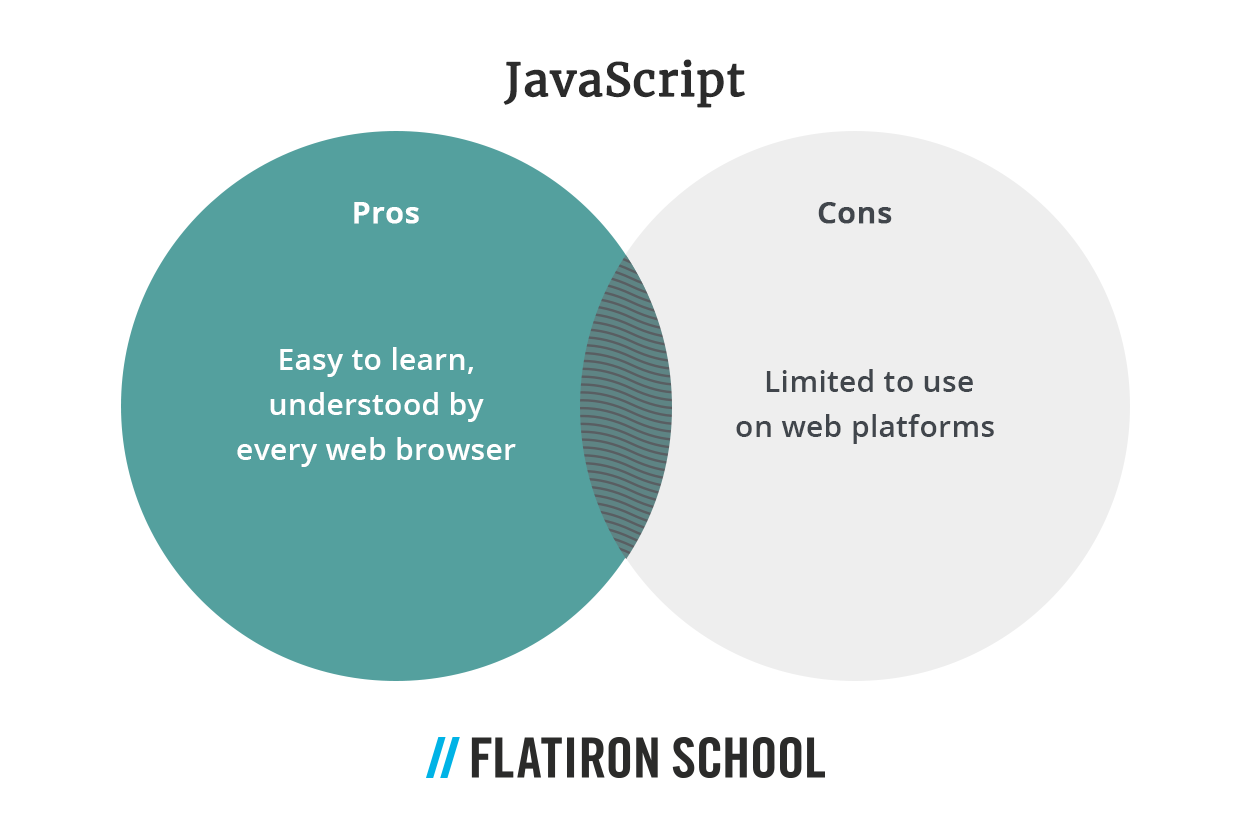
- Pros – easy to learn, understood by every web browser
- Cons – limited to use on web platforms
Python
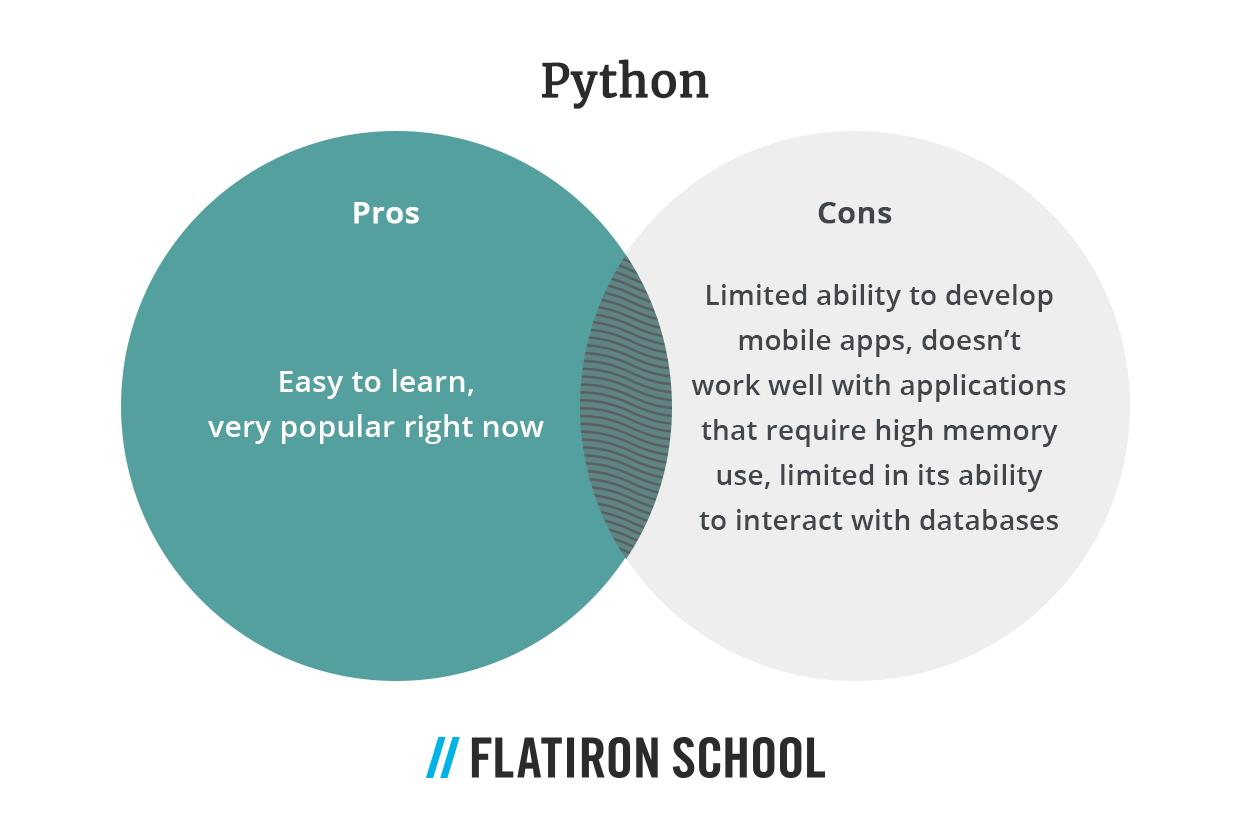
- Pros – easy to learn, very popular right now
- Cons – limited ability to develop mobile apps, doesn’t work well with applications that require high memory use, limited in its ability to interact with databases
Java
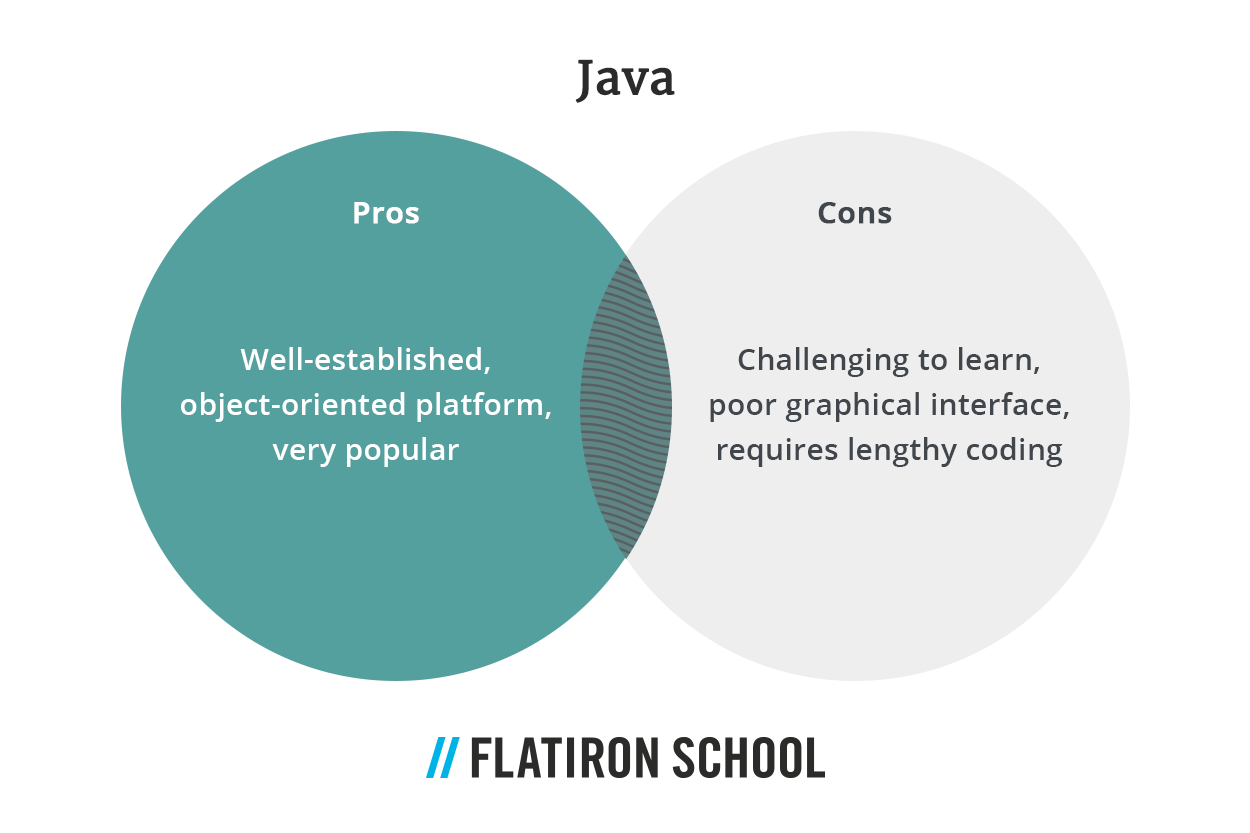
- Pros – well-established, object-oriented platform, very popular
- Cons – challenging to learn, poor graphical interface, requires lengthy coding
C/C++
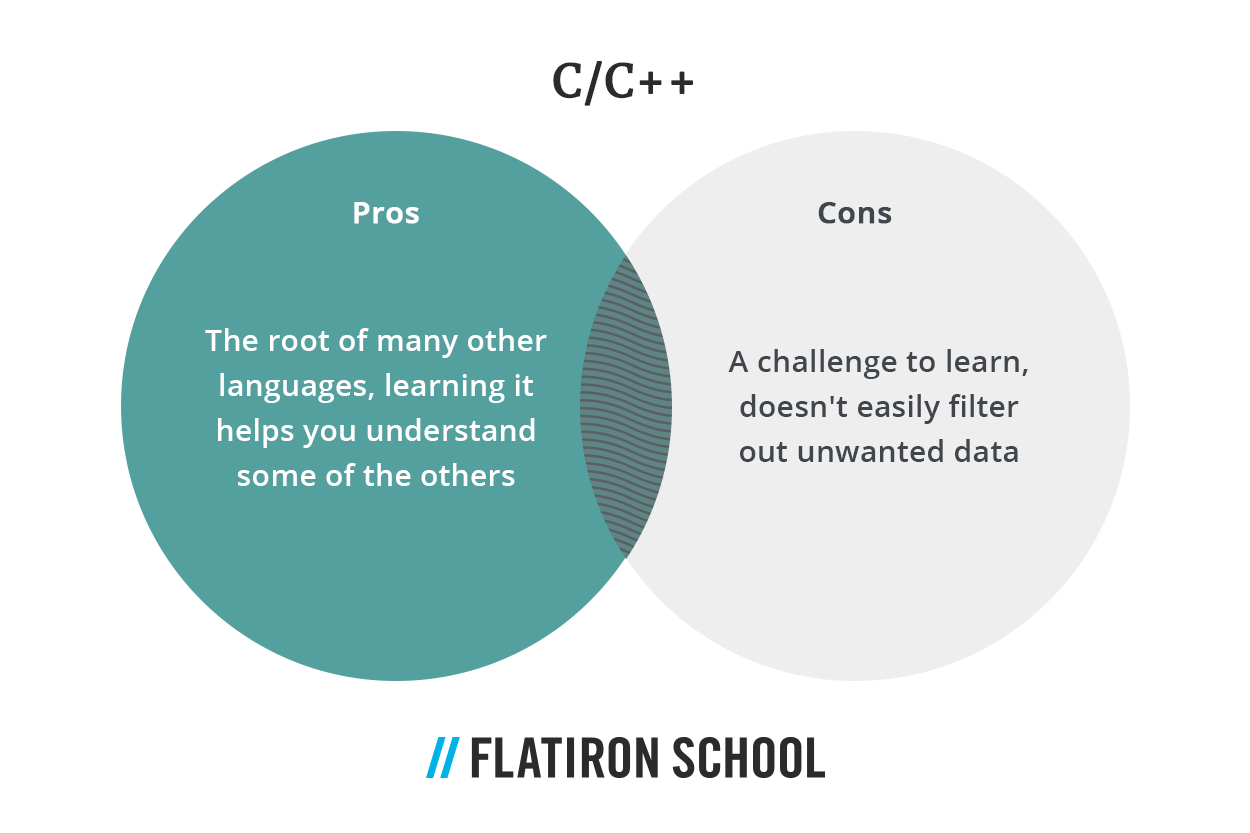
- Pros – the root of many other languages, learning it helps you understand some of the others
- Cons – a challenge to learn, doesn’t easily filter out unwanted data
Go
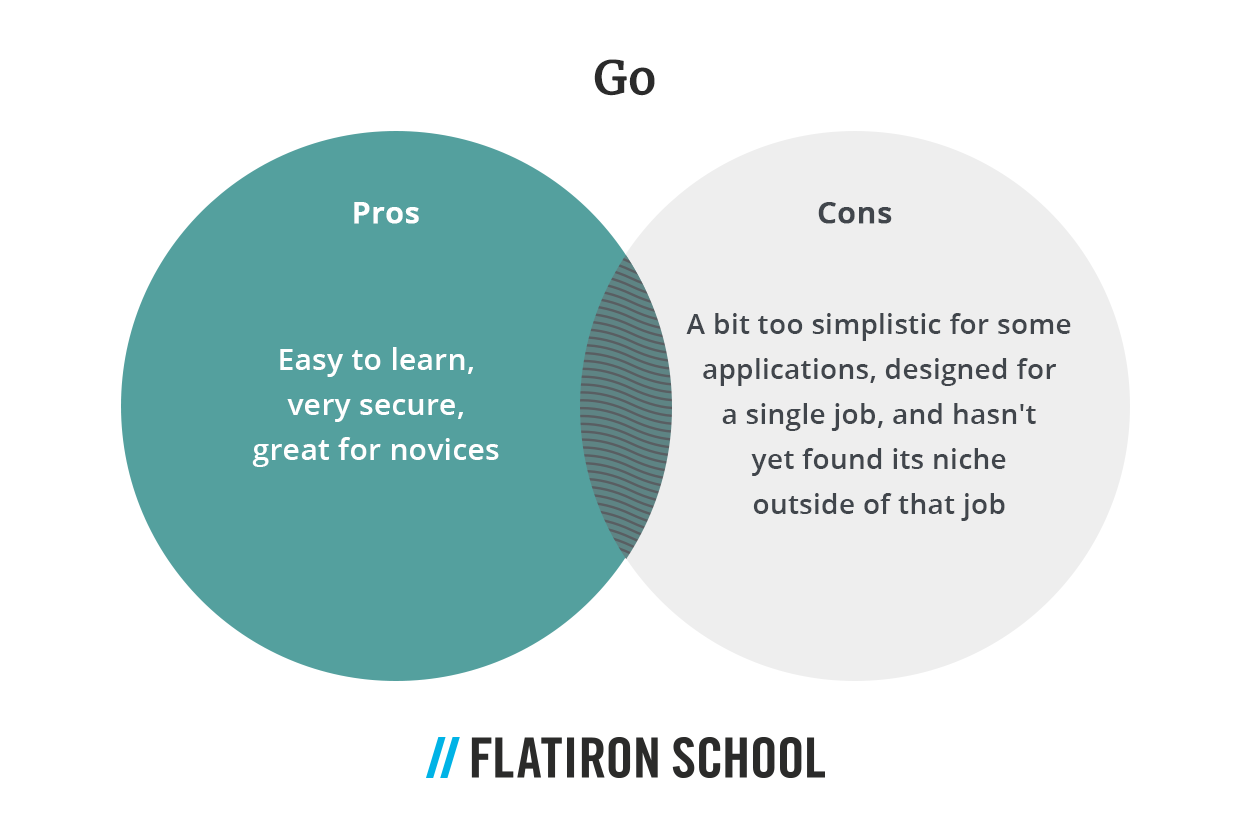
- Pros – easy to learn, very secure, great for novices
- Cons – a bit too simplistic for some applications, designed for a single job, and hasn’t yet found its niche outside of that job
Ruby
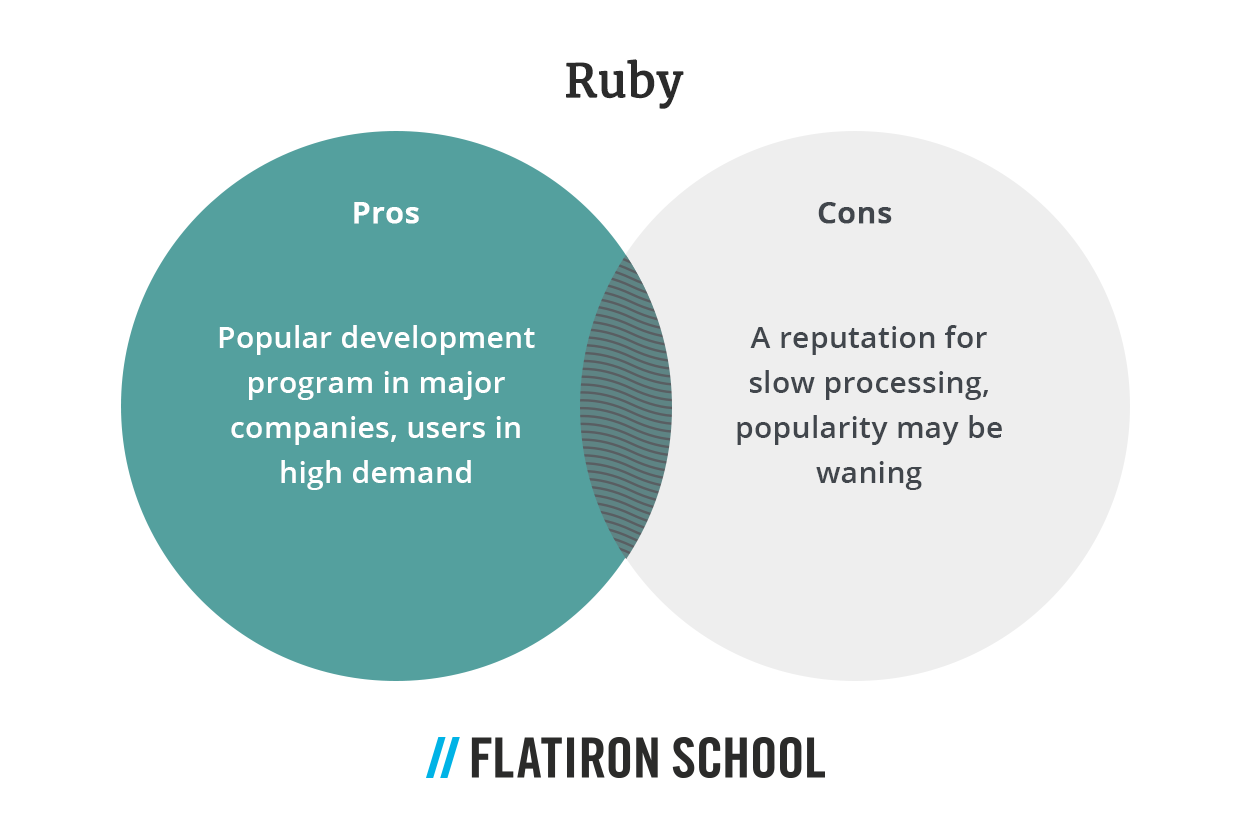
- Pros – popular development program in major companies, users in high demand
- Cons – a reputation for slow processing, popularity may be waning
PHP
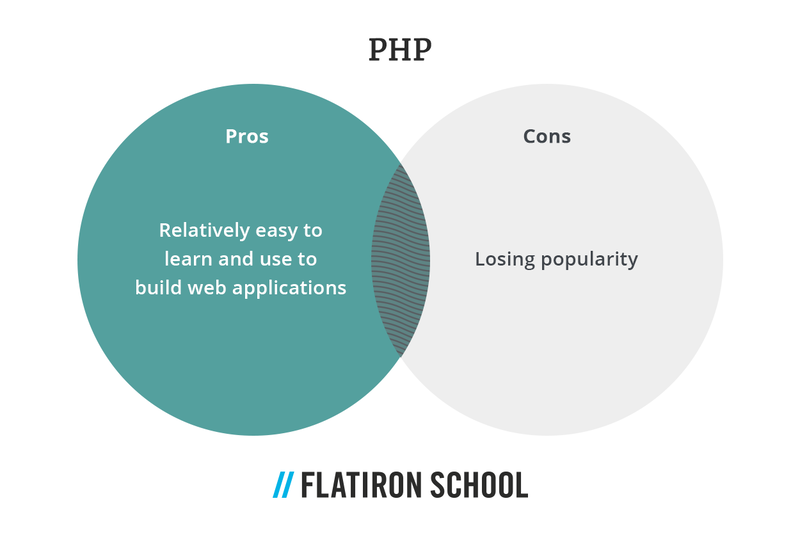
- Pros – relatively easy to learn and use to build web applications
- Cons – losing popularity
C#
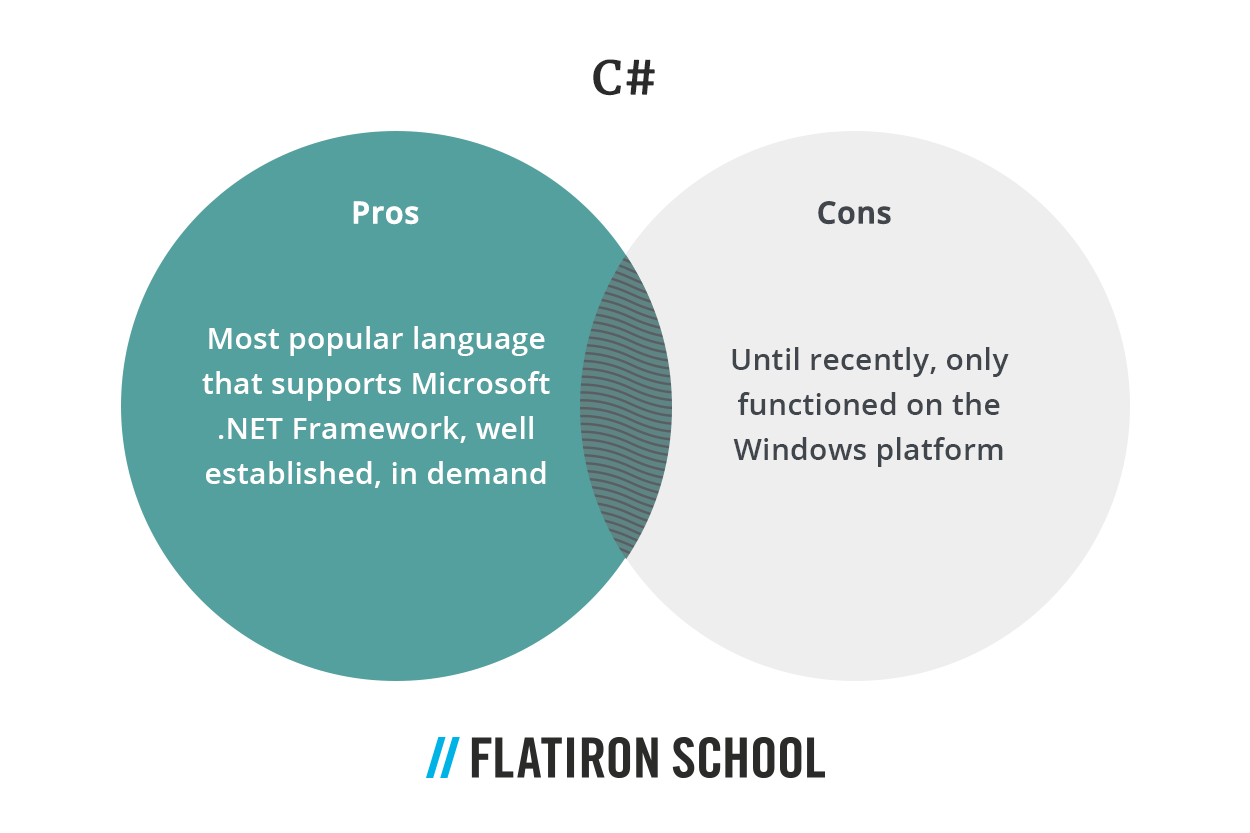
- Pros – most popular language that supports Microsoft .NET Framework, well established, in demand
- Cons – until recently, only functioned on the Windows platform
Swift
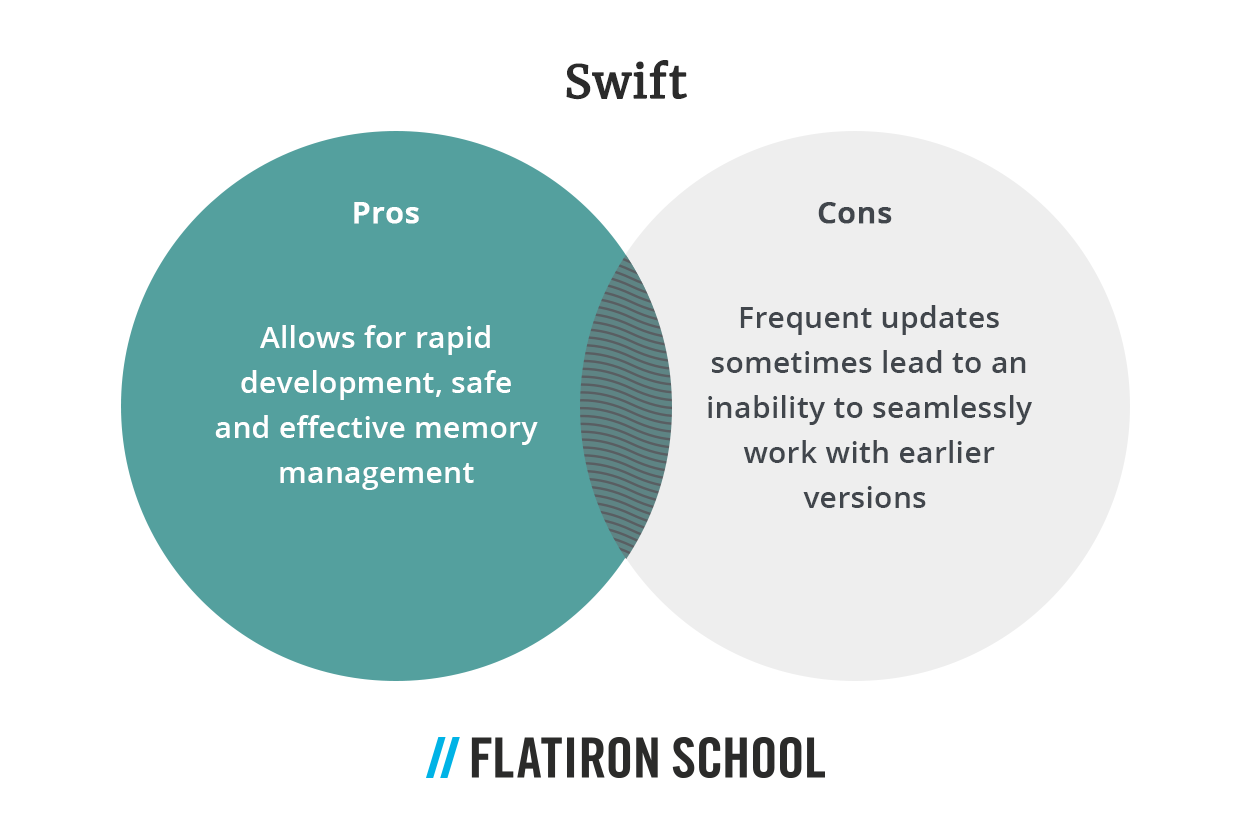
- Pros – allows for rapid development, safe and effective memory management
- Cons – frequent updates sometimes lead to an inability to seamlessly work with earlier versions
Rust
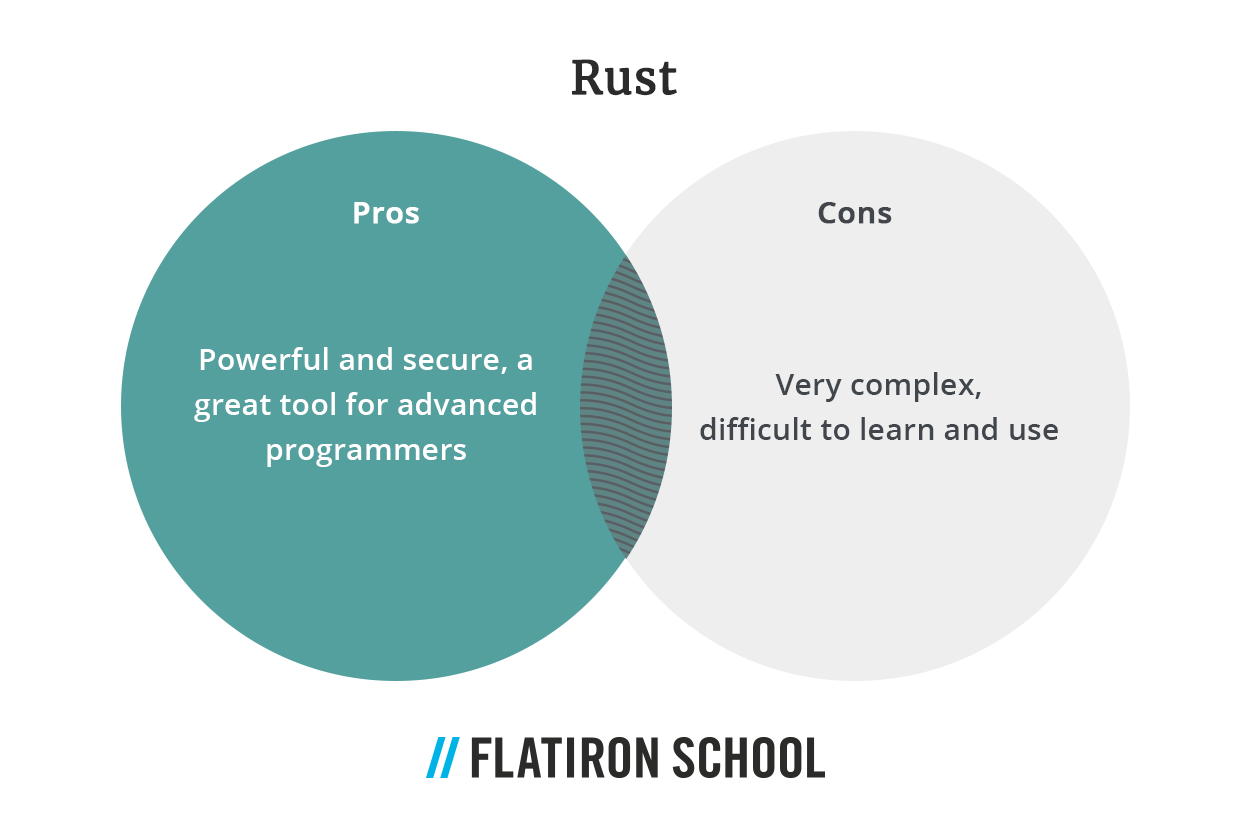
- Pros – powerful and secure, a great tool for advanced programmers
- Cons – very complex, difficult to learn and use
Which coding language is easiest to learn?
According to CareerKarma.com, these are the five easiest coding languages for the novice to computer programming to learn:
- JavaScript
- Ruby
- Python
- Java
- C/C++
Of course, whenever words like easiest are used the answer is open to opinion. While Python and JavaScript are widely accepted as easy to learn, Ruby, Java, and C/C++ are considered challenging by some. Also, others would add Go, and PHP to the list of programming languages that are easiest for the beginner to master.
How do I start learning code?

The best way to learn any basic computer language is to find the right teacher. There are many schools, academies, and clinics, both online and in-person, that claim they can give you everything you need to learn almost any coding language. This is not always the case, however. For the best learning experience, find a reputable coding bootcamp with a proven track record, like Flatiron School.
Students can attend classes either online, in person, or a hybrid of both. We even offer free resources like these workshops as a resource to learn some of the best coding languages for beginners. For more information about how to learn a new coding language, book a 10-minute chat with admissions to see if a coding bootcamp is right for you.




